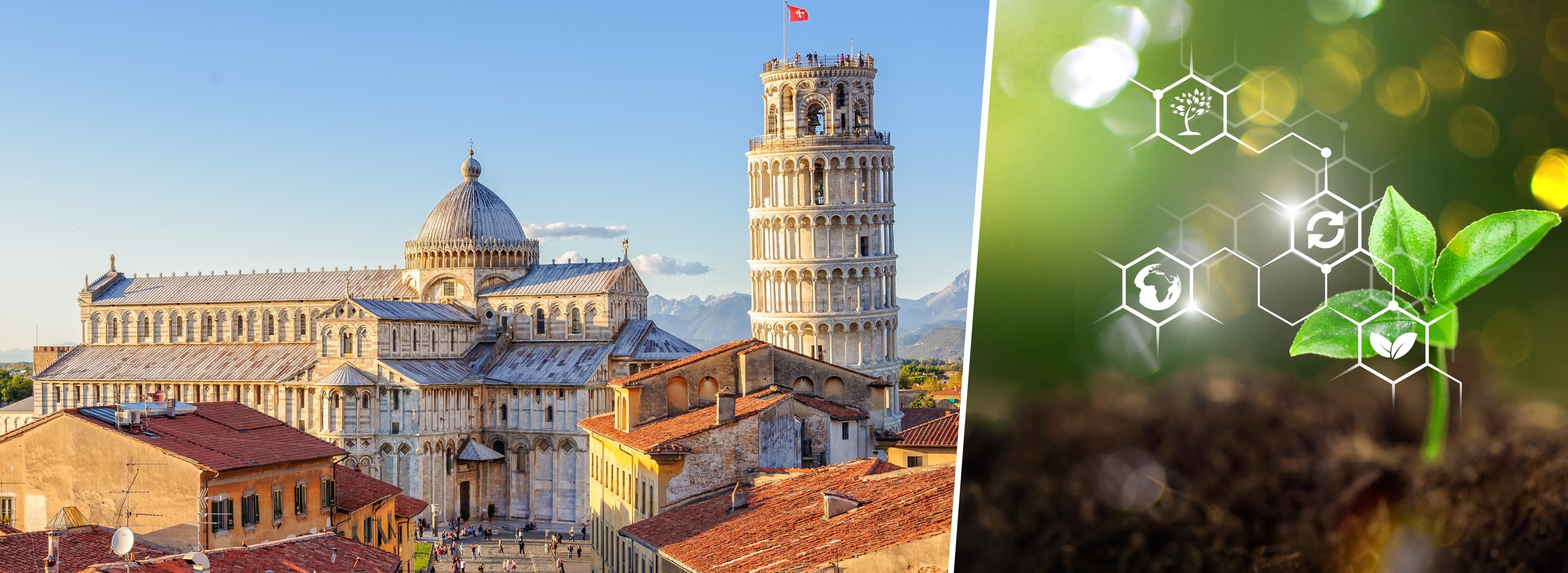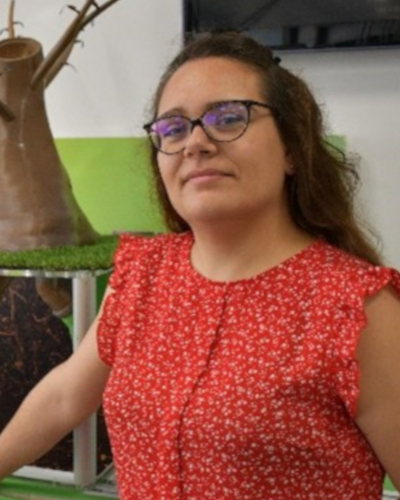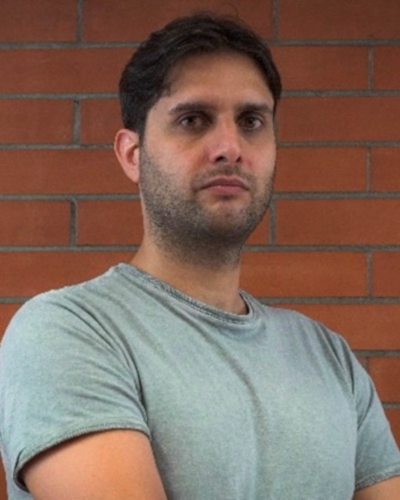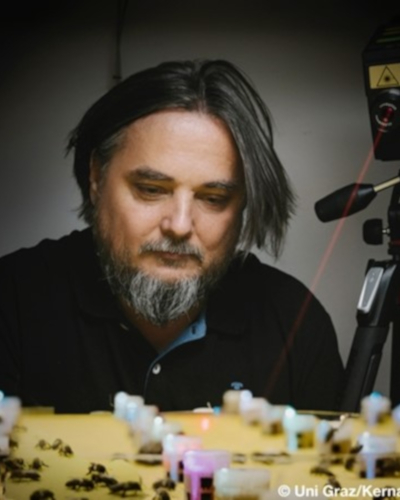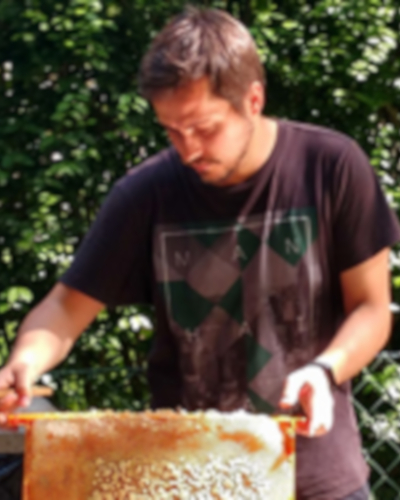SPECIAL SESSION #15
Bioinspired Engineering, Soft Robotics and Bio-hybrid Technologies as new Frontiers in Sustainable Agriculture and Environmental Management
ORGANIZED BY
Emanuela Del Dottore
Bioinspired Soft Robotics Laboratory, Istituto Italiano di Tecnologia, Italy
Donato Romano
The BioRobotics Institute, Scuola Superiore Sant’Anna, Italy
Thomas Schmickl
University of Graz, Institute of Biology, Department of Zoology, Austria
Martin Stefanec
University of Graz, Institute of Biology, Department of Zoology, Austria
ABSTRACT
Bioinspiration is a long-lasting approach that is increasingly adopted in robotics. Its main goals are to inspire novel, emerging technologies and robotic systems that are expected to (i) interact more safely with natural unstructured environments and living beings, and (ii) cope better with uncertain and dynamic conditions through embodied natural behaviors. In addition, the bioinspired approach consents to deepen the knowledge of natural processes and systems, with the additional effect of raising awareness and encouraging more environmentally conscious practices.
Soft robotics embraces the bioinspired approach by considering soft-bodied animals and plants as viable models for engineering novel artificial systems. These models can suggest strategies for new robot capabilities of online adaptation, such as morphing, elongating, or even growing, distributed and collective intelligence, physical intelligence, soft sensing, and computation. Biohybrid agents are augmented systems that include technological elements and living components, increasingly merging the organic and inorganic worlds into groundbreaking configurations of emergent bio-artificial life. Important applications of such biohybrid systems include agro-ecosystem management, environmental monitoring, augmentation of living and/or artificial systems, to help us preserve and restore ecosystems threatened by unprecedented global changes.
Because of their features, bioinspired engineering, soft robotics, and biohybrid systems can offer new disruptive solutions to ecosystems, crops and food management approaches. Soft-bodied machines can gently interact with their surroundings, providing strategic solutions to crop harvesting, for example. Autonomous bioinspired or biohybrid devices can be released for remote exploration and monitoring, benefiting from energetically efficient design and computation for long-term operations or natural-like behaviors to facilitate the artifact’s interactions with the environment and/or other living organisms.
This special session intends to collect current works on soft robotics, bioinspired, and biohybrid systems towards sustainable monitoring and management in the context of agriculture, food, and natural ecosystems.
TOPICS
Topics include, but are not limited to:
- Bioinspired and biomimetic engineering design;
- Soft robotics;
- Biohybrid systems for agro-ecosystems and food applications;
- Soft computing and physical intelligence;
- Distributed intelligence and collective behaviors;
- Robot sensing for environmental monitoring and perception;
- Swarm and multi-agent systems;
- Lab-on-chip technology;
- Biosensors;
- Methodologies for behavioral analysis of living systems;
- Biocompatible materials engineering.
ABOUT THE ORGANIZERS
Dr. Emanuela Del Dottore is a Researcher in Bioinspired Soft Robotics at the Istituto Italiano di Tecnologia (IIT), Italy. With a background in Computer Science (University of Pisa) and a Ph.D. in Biorobotics (cum laude, from Scuola Superiore S. Anna, Pisa), she works on the development of control and decision-making strategies for bioinspired robots based on plants growth behaviors. Dr. Del Dottore has contributed to writing successful regional and international project proposals with large and multidisciplinary consortiums and participated in their development. She is a co-advisor of several Ph.D. students, fellows, research int erns, and postdocs working in plant-inspired robotics, growing robots, and soft robotics. Dr. Del Dottore is currently analyzing plant behaviors to implement plant-inspired computational models useful for multi-agent systems' distributed control and communication. She aims to extract functional rules from natural living systems and implement similar functionalities to enable efficient compliance and adaptation in robotic artifacts to explore and monitor unstructured and mutable environments.
Donato Romano [M.Sc. in Agriculture Science and Technologies (honors), PhD in BioRobotics (honors)] is currently Assistant Professor at The BioRobotics Institute of Scuola Superiore Sant’Anna of Pisa, Italy, and teaches course in the M.S. Program in Bionics Engineering jointly organized by the University of Pisa and by the Scuola Superiore Sant’Anna. Romano is mainly focusing his activities on bioinspired and biomimetic robotics, and in particular on animal-robot interaction, biohybrid systems, natural and biohybrid intelligence, ethorobotics, neuroethology. Major aims of his research are biodiversity preservation, sustainable environmental m anagement, life support in extreme scenarios. He received national and international recognition for his research. He also has been visiting researcher at Khalifa University, Abu Dhabi (UAE). He is Member of the Editorial Board for many International Scientific Journals. He is PI or partner of several national and international research projects.
Prof. Thomas Schmickl is full professor at the Institute of Biology at the University of Graz, Austria, where he also supervises the Artificial Life Lab, which he founded in 2007, after returning from a HHMI visiting professorship in the USA. In 2012, he was appointed the Basler Chair of Excellence at the East Tennessee State University (ETSU), USA. His research focuses on the biology of social insects and on ecological modeling, as well as on bio-inspired engineering including swarm-, modular-, hormone-, and evolutionary-robotics. He was/is partner in the EU-funded projects I-Swarm, Symbrion, Replicator, FloraRobotica, RoboRoyale and l eading scientist and consortium coordinator of the EU grants CoCoRo, ASSISIbf, subCULTron, Atempgrad and Hiveopolis. These international grants aim mostly at improving the current state-of-the-art in robotics to allow robotic agents to be more like animals or plants to be adaptive, resilient, and flexible. Recently, living organisms became parts of his targeted bio-hybrid robotic systems, to form a sustainable organism-technology symbioses. In 2018, he founded the Field of Excellence COLIBRI (Complexity of Life in Basic Research & Innovation) at Uni Graz, a network of 20+ full professors researching complexity sciences with a focus on living systems, joining forces across various disciplines.
Martin Stefanec is currently a research assistant at the University of Graz, Austria, funded by the Field of Excellence COLIBRI (Complexity of Life in Basic Research & Innovation). He conducts his research in the Artificial Life Lab, supervised by Prof. Thomas Schmickl, on bio-hybrid robotic systems interacting with the superorganism honeybee. The focus of his research is on the interactions between technology and individuals at the microscopic level, and how these interactions can affect groups of animals, the entire colony, and ultimately the ecosystem in which the bio-hybrid system resides. He is particularly interested in the beh avioral responses elicited by artificial physical stimuli at different levels of biological organization, as well as the feedback interactions between technology and life that occur in such systems. Martin has participated in several international EU-funded research projects (ASSISIbf, Atempgrad, Hiveopolis, RoboRoyale) and has contributed to the preparation of successful international project proposals (Atempgrad, Hiveopolis). In addition to his research, he teaches university courses on the social interactions of animals.

